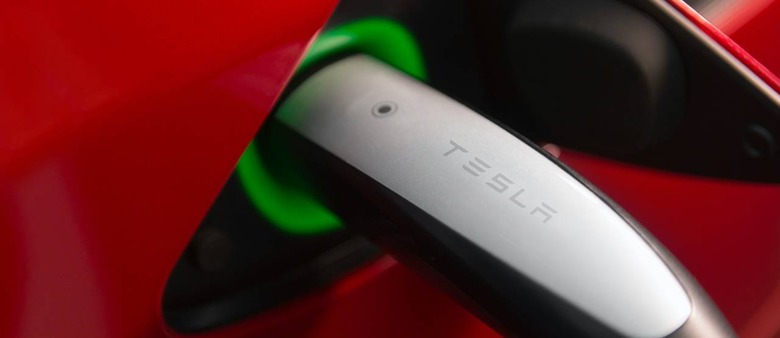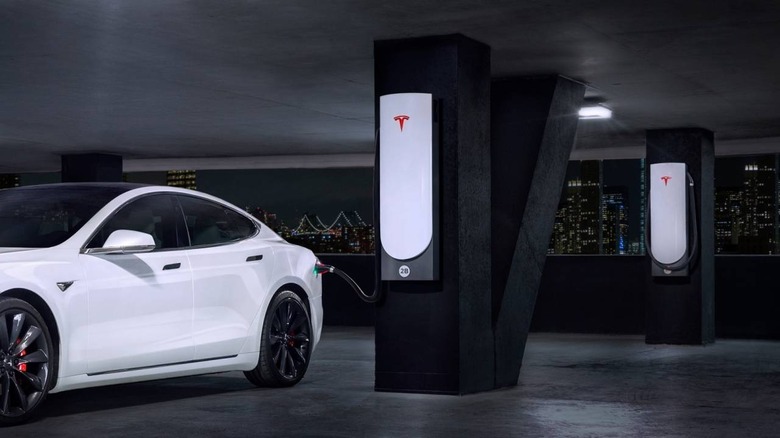Tesla just cut the Supercharger perk for its most expensive EVs
Tesla may have sliced $5,000 off the sticker price of its most expensive cars, but the automaker's flagship EVs have also quietly lost their free access to its Supercharger network. Arguably still Tesla's trump card in the electric vehicle space, the Superchargers – high-speed chargers enabling Tesla owners to drive cross-country, punctuated with rapid top-ups – had long been a perk for the Model S and Model X.
Indeed, when the cars launched, free Supercharger access for the Model S and Model X were part of the deal. Range anxiety was – and probably still is – the biggest concern among would-be EV buyers. By throwing in free charging at its growing Supercharger network, Tesla aimed to assuage those fears.
Over time, though, the sustainability of that perk became impractical. Tesla removed it in 2017, giving new EV buyers a wallet of Supercharger credits that the automaker said would cover the average annual long-distance driving. Subsequent promotions returned free Supercharging, typically to bump up sales near the end of each quarter.

Until recently, buyers of new Model S and Model X cars could expect free Supercharger access. Now, Elektrek spotted, that's been removed.
It comes at the same time that Tesla reduced the price of the Model S and the Model X by $5,000. A Model S Long Range Plus now starts at $74,990 before any incentives; the Model X now starts at $79,990 before any incentives.
The price cuts – which also see the Model 3 reduced by $2,000, though the new Model Y electric crossover is unaffected – are widely being seen as Tesla's last-ditch attempt to drum up sales before the end of this financial quarter. COVID-19 precautions, which saw the automaker's factories shut down temporarily, are expected to have put a significant dampener on deliveries over the past few months. CEO Elon Musk has been an outspoken critic of how California handled the pandemic, pushing for permission to reopen earlier than health officials would allow.

For now, those in the market for a Model S or Model X should probably do the math and see just how much Supercharging they can get for that $5,000 in savings. Pricing varies by location: where possible, Tesla bills by kWh delivered, though in some states that's not possible. Instead, the automaker charges per minute, and across two tiers depending on charging rate.
In the US, it costs $0.28 per kWh on average. For locations billed by duration, it's $0.26 per minute for rates above 60 kW, or $0.13 per minute for 60 kW or below; the lower rate is also automatically charged if you're sharing a Supercharger with another Tesla.
Since the Supercharger network launched, of course, we've seen moves by other providers to replicate its success. Electrify America, for example, was formed as part of Volkswagen's mea culpa for "dieselgate"; it offers DC fast charging for a fee, compatible with both vehicles from VW Group but also Tesla and other brands.
